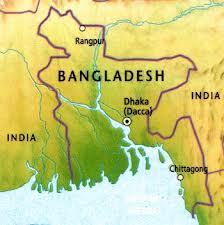As the world celebrates Women’s History Month, it’s a time to reflect not only on the progress women have made but also on the barriers that still remain. Farida Jalalzai, a political science expert at Virginia Tech, offered insights into the significance of this month and the impact of women leaders on global politics.
“Former prime ministers of New Zealand and Finland Jacinda Ardern and Sanna Marin respectively broke norms by showing more of a human side to leadership,” Jalalzai said.
Women’s History Month recognizes the achievements of women throughout the world, regardless of national, political, ethnic, economic or cultural divisions. Expanded since the first observation of a Women’s History Week in 1978, the timing was designed to encompass the annual March observation of International Women’s Day, with themes this year of supporting diversity and progressing toward gender equality.
Jalalzai emphasized the importance of Women’s History Month as an opportunity to evaluate the advancements of women worldwide. “It’s a time to recognize how far we’ve come but also acknowledge the distance we still need to travel,” she stated.
In her reflections, Jalalzai highlighted the remarkable achievements of women leaders who have shattered stereotypes and redefined the traditional roles of governance. She particularly praised former Prime Ministers Jacinda Ardern of New Zealand and Sanna Marin of Finland for their approaches to leadership.
“Former prime ministers of New Zealand and Finland Jacinda Ardern and Sanna Marin respectively broke norms by showing more of a human side to leadership,” Jalalzai said.
“Arden navigated unprecedented crises and put the well-being of others front and center of her prime ministership. I see her as an inspirational leader who showed that a different type of leadership is possible and better.”
“She demonstrated that you could be strong, decisive, kind, and empathetic,” Jalalzai said.
Similarly, Jalalzai applauded Sanna Marin for placing the human aspect of leadership at the forefront of her persona.
“Sanna Marin, still in the Finnish parliament, has created a persona that puts the human aspect front and center as well,” Jalalzai remarked.
“Though she was at times criticized, on balance I think that people respected her for this. In this way, women can sometimes broaden the view we have of what a leader can do.”
Beyond Ardern and Marin, Jalalzai also recognized trailblazing women leaders in countries where political participation for women remains challenging. She cited Ellen Johnson Sirleaf, former President of Liberia, as a prime example of strength and compassion in leadership.
“Other women who have broken barriers have done so in countries where women struggle to gain a political foothold. There are many such examples but one that comes to mind is Ellen Johnson Sirleaf, former president of Liberia,” Jalalzai added. “She again showed that you could be strong and compassionate and bring different sides to the table.”
However, Jalalzai cautioned against idealizing all women leaders, acknowledging the unique obstacles they face and the varied approaches they adopt in governance. “Not all women leaders serve as inspiring examples, and it’s essential to evaluate each case individually,” she emphasized.
Nevertheless, Jalalzai believes that women leaders often bring a distinct set of skills and experiences to the table, including a propensity for collaborative approaches and advocacy for marginalized groups. “As symbols of women in power, they have the potential to inspire other women to pursue leadership roles,” she concluded.











